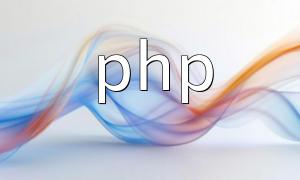PHP7 introduced an important new feature—optional strict types. This feature allows developers to enforce stricter control over data types, effectively improving code quality and stability. By enabling strict types, PHP no longer automatically performs implicit type conversion, requiring function parameters and return values to match their declared types exactly.
To enable strict types in PHP, add the following declaration at the beginning of your script:
declare(strict_types=1);This tells the PHP interpreter to enforce strict type checking in the current file.
By default, PHP automatically converts different types, which can hide potential issues. With strict types enabled, mismatched types will trigger a runtime error. For example:
function addNumbers(int $a, int $b): int {
return $a + $b;
}In strict mode, passing non-integer values, such as strings or floats, will result in a type error, preventing unintended behavior.
Strict types also apply to function return values. If a function declares a specific return type but returns a value of a different type, PHP will throw an error. For example:
function divideNumbers(int $a, int $b): float {
return $a / $b;
}Here, the function declares a return type of float. Returning an integer would cause a type error. This enforcement helps developers catch logical mistakes early.
PHP7's strict mode supports explicit type declarations for arrays and nullable types. Developers can allow parameters to be null by prefixing the type with a question mark (?).
function processArray(array $arr): void {
// Handle non-null array
}
function processNullableArray(?array $arr): void {
// Handle nullable array
}This approach ensures that functions handle input safely and predictably.
The main advantage of strict types is that it enforces clear type rules at the code level. This reduces potential bugs and improves code readability and consistency, especially in team development. For large projects, using strict types significantly enhances maintainability and runtime stability.
PHP7's optional strict types provide developers with a powerful way to create high-quality code. By enforcing type checking and clear error signaling, developers can manage data flow more reliably and avoid unexpected type conversion issues. Although it requires slightly more effort initially, strict types greatly improve the robustness and maintainability of projects in the long run.
If you haven't tried strict types in your projects yet, consider enabling them in your next PHP application to experience higher standards of code quality and maintainability.









